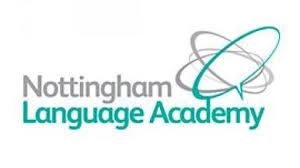
Innovative Leadership, Strategic Planning and Organizational Effectiveness
Course ID: 2508252701235EGI
Course Dates : 25/08/25 Course Duration : 5 Studying Day/s Course Location: Barcelona, Spain
Language: Bilingual
Course Category: Professional and CPD Training Programs
Course Subcategories: Leadership and Management Excellence
Course Certified By: * Projacs Academy
* Professional Training and CPD Programs
Certification Will Be Issued From :
KSA
Course Fees: £4,838.34
Vat Not Included in the price. VAT may vary depending on the country where the course or workshop is held.
Click to Pay
Date has passed please contact us Sales@e-s-hub.com
Course Information
Introduction
Leadership, strategic planning, and organizational effectiveness are the cornerstones of sustainable success in any enterprise. These interconnected disciplines form the backbone of decision-making processes that drive innovation, foster resilience, and ensure alignment with long-term goals. As organizations navigate increasingly complex environments marked by rapid technological advancements, shifting consumer expectations, and global uncertainties, the demand for leaders who can think strategically while fostering a culture of adaptability has never been more critical. This course is designed to equip participants with the tools and frameworks necessary to lead with vision, execute with precision, and optimize organizational performance.
A recurring challenge faced by many organizations is the gap between strategy formulation and implementation. Research from McKinsey & Company indicates that 70% of strategic initiatives fail due to poor execution, often attributed to misaligned priorities, inadequate communication, or insufficient leadership capabilities. Similarly, leaders frequently struggle to balance short-term operational demands with long-term strategic objectives. This course addresses these challenges by integrating cutting-edge leadership theories, such as transformational and servant leadership, with proven strategic planning methodologies like the Balanced Scorecard and scenario planning. Participants will learn how to bridge this gap by developing actionable plans rooted in organizational realities.
The benefits of mastering innovative leadership and strategic planning extend beyond individual career advancement. Organizations led by visionary leaders consistently outperform their peers, as evidenced by studies from Harvard Business Review, which highlight the correlation between effective leadership and financial performance. For individuals, this course offers an opportunity to enhance their professional credibility, expand their influence, and position themselves as catalysts for change. On an organizational level, the skills acquired through this program can drive improved efficiency, heightened employee engagement, and sustained competitive advantage.
To illustrate the practical relevance of the course material, consider the case of Netflix. Under the leadership of Reed Hastings, the company transitioned from a DVD rental service to a global streaming giant, leveraging strategic foresight and adaptive leadership. By anticipating market trends and investing in original content, Netflix not only survived but thrived amidst industry disruption. Such examples underscore the importance of aligning leadership practices with strategic imperatives—a core focus of this training program.
Drawing on seminal works such as John Kotter’s "Leading Change" and Michael Porter’s “Competitive Strategy,” this course provides a robust theoretical foundation while emphasizing real-world applicability. Participants will explore frameworks for fostering innovation, managing change, and cultivating high-performance teams. The curriculum also incorporates insights from recent industry trends, including the rise of remote work, the emphasis on diversity and inclusion, and the growing importance of sustainability in corporate strategy.
Ultimately, this course is not just about acquiring knowledge—it is about transforming mindsets and empowering leaders to create meaningful impact. Whether you are a seasoned executive seeking to refine your skills or an emerging leader eager to make your mark, this program offers the tools, techniques, and inspiration needed to excel in today’s dynamic business landscape.
Objectives
By attending this course, participants will be able to:
Analyze the key components of innovative leadership and evaluate their relevance to contemporary organizational challenges.
Design comprehensive strategic plans using frameworks such as the Balanced Scorecard and SWOT analysis.
Implement change management strategies that minimize resistance and maximize stakeholder buy-in.
Apply principles of organizational effectiveness to enhance productivity, collaboration, and employee satisfaction.
Evaluate the role of technology and data analytics in driving strategic decision-making.
Develop personal leadership styles that align with organizational values and goals.
Synthesize lessons from case studies to propose tailored solutions for real-world scenarios.
Who Should Attend?
This course is ideal for:
Senior executives and managers responsible for guiding organizational strategy and operations.
HR professionals tasked with fostering leadership development and cultural transformation.
Consultants and advisors supporting clients in strategic planning and organizational design.
Project managers overseeing large-scale initiatives requiring cross-functional coordination.
Entrepreneurs and small business owners aiming to scale their ventures effectively.
These groups will find the course invaluable as it addresses the pressing need for adaptive leadership and strategic acumen in an era defined by uncertainty and rapid change. While prior experience in leadership or strategy is beneficial, the course is structured to accommodate intermediate learners seeking to deepen their expertise.
Training Method
• Pre-assessment
• Live group instruction
• Use of real-world examples, case studies and exercises
• Interactive participation and discussion
• Power point presentation, LCD and flip chart
• Group activities and tests
• Each participant receives a 7” Tablet containing a copy of the presentation, slides and handouts
• Post-assessment
Program Support
This program is supported by:
* Interactive discussions
* Role-play
* Case studies and highlight the techniques available to the participants.
Daily Agenda
The course agenda will be as follows:
• Technical Session 08.30-10.00 am
• Coffee Break 10.00-10.15 am
• Technical Session 10.15-12.15 noon
• Coffee Break 12.15-12.45 pm
• Technical Session 12.45-02.30 pm
• Course Ends 02.30 pm
Course Outlines
Foundations of Innovative Leadership
Defining innovative leadership and its impact on organizational success.
Exploring leadership theories: Transformational, servant, and situational leadership.
Identifying barriers to innovation and strategies to overcome them.
Building emotional intelligence as a cornerstone of effective leadership.
Day 2:
Principles of Strategic Planning
Understanding the strategic planning process: Vision, mission, and goals.
Conducting environmental scans using PESTLE and SWOT analyses.
Aligning resources and capabilities with strategic objectives.
Developing SMART goals for measurable outcomes.
Day 3:
Driving Organizational Effectiveness
Assessing organizational health and identifying areas for improvement.
Enhancing team dynamics and fostering a culture of accountability.
Leveraging performance metrics to track progress and results.
Balancing efficiency with innovation in day-to-day operations.
Day 4:
Change Management and Execution Excellence
Navigating the stages of change: Awareness, adoption, and adaptation.
Communicating change effectively to diverse stakeholders.
Mitigating risks associated with strategic implementation.
Measuring the ROI of strategic initiatives post-execution.
Day 5:
Leading in the Digital Age
Harnessing technology to support strategic decision-making.
Incorporating data analytics into leadership practices.
Promoting ethical leadership and sustainability in business operations.
Creating a roadmap for continuous improvement and lifelong learning.



















































